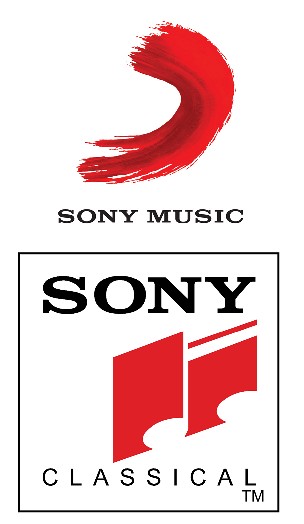With the release of The Magnificent Seven film coming ever closer, and with the album being released tomorrow, anticipation has been building. New audio samples have been released on the Japanese website Neowing. Listen to the first 45 seconds of each track here: neowing.co.jp
Simon Franglen has been very busy promoting the score and film. Since our previous article, he has given interviews with CBC Music, FilmGamesEtc, Yahoo Sports, and Film Music Magazine. We would like to share some of these articles’ highlights.
In each of them, Simon Franglen recounts the story of the score’s beginning: meeting with James Horner in London, and beginning to write themes for the film. After a week, Horner flew back to his home in California. Shortly after, the horrible tragedy came.
"I couldn’t just let James’ final compositions disappear. In talking with the other members of the team, Jim Henrikson, Joe E. Rand, J.A.C Redford, they were unanimous in encouraging Simon Rhodes and me to complete a suite of themes that could be presented to Antoine [Fuqua]. Two weeks later, I was in Louisiana playing the music to an astonished director from his friend.”
One of the biggest challenges, he explains, was giving the score the western flavor it needed, while also giving it the modern, gritty tone that Fuqua’s film demanded.
“Many of the ethnic elements came from Antoine’s urging. He was referencing James’ “Thunderheart” often and that really helped define those textures. I wanted to find an organic way to give the rhythmic and contemporary feel that a modern score needs, so we used live instruments, acoustic baritone guitars and guitarróns, disgruntled banjos and distressed qenas, rather than anything electronic for the vast majority of the score.”
He often explains his musical background, from his first film gig on John Barry’s Dances With Wolves, his work with Thomas Newman, Howard Shore, and Alan Silvestri, to his early experiences with Horner, especially on Titanic. He says he is grateful for the different techniques that he has learned from each of them.
“If I learned one thing from James, it was that a score has to evolve with its characters…. His ability to reflect the heart of the film was unparalleled. We’d all worked with James for so long we breathed his style, so combining where he started with the direction changes that post production bring to any project was never going to be difficult. Ultimately the most important thing was that Antoine got the score he needed.”
"The last thing we wanted to do was make this a mausoleum…. It was meant to be a film score for a very specific film. Antoine needed music that reflected his film and that's the first job of a film composer, to serve the film and be the emotional heart. James would have been adamant that the score has to serve the film."
Particularly in the Film Music Magazine article (which includes images from the scoring sessions), he goes into detail about his approach to certain themes and cues. He even mentions the famous four-note motif, which is part of the cue Lighting the Fuse.
“We put it in there once. We had to. That's the ‘Danger Motif’ … one of the most spoken about things in film music. It was the right thing to do. It isn't meant to be anything other than being the right thing in that moment for the score.”
He often discusses his skills with synthesizers, but is quick to note that The Magnificent Seven is a shamelessly orchestral work. He is quick to praise the many people who helped make this score come together, and seems to be eager for future projects. Even though he only has two film scores to his name as a composer, he has a strong hold on his musical philosophy.
“I hope that in the coming years I can remind people that machines can breathe and flow as well as groove in 4/4, that orchestral writing is not a box of samples playing at full volume, that emotion in music is a good thing and most importantly, themes are not old fashioned. Finding the soul of a film in the score is what I love to do.”
He also discusses the use of Elmer Bernstein’s material from the original The Magnificent Seven, his work on Titanic and Avatar, his upcoming projects (including Terrence Malick’s Voyage of Time), his own favorite western scores and his musical influence.
Hearing him discuss the project so passionately only adds to our excitement for the score and film. Especially for dedicated fans of Horner, so much of what he says rings true, and many of his remarks sound as if they could have come from the Maestro himself. In spite of the incredibly high expectations, I am sure that fans will hear in The Magnificent Seven not only the brilliance of Horner’s melodies, but the thematic narrative and emotional faithfulness that we have come to expect from every James Horner score. And The Magnificent Seven is truly that – a James Horner score.
Read the full interviews here:
Look for our own interview with Simon Franglen, to be published soon.
Photo credit: © Sony Pictures Releasing, Metro-Goldwyn-Mayer Pictures Inc. and Columbia Pictures Industries, Inc.











